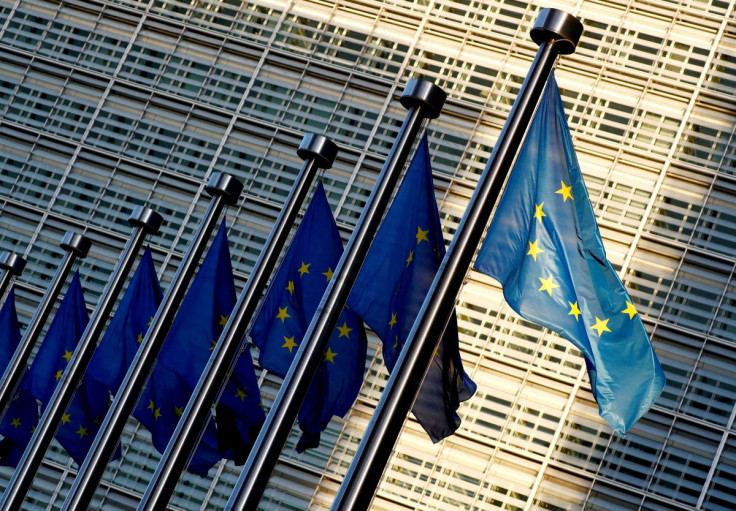EU Leaders To Tell Ukraine: "you Belong To Our Family"

European Union leaders will wrestle on Thursday with how to reduce their reliance on Russian energy and bolster political and moral support for Ukraine in the face of Moscow's invasion, but will rebuff Kyiv's appeal for rapid accession to the bloc.
As Russia's war in Ukraine enters a third week, the EU will say "Ukraine belongs to our European family", a draft declaration showed, while the leaders are also expected to sign off on a new sanctions package that spares Russian fossil fuels.
"We will further strengthen our bonds and deepen our partnership (with Ukraine), the draft declaration states.
But such wording will disappoint President Volodymyr Zelenskiy, who has appealed to the EU to grant his country rapid membership of the bloc and to NATO to impose a no-fly zone over Ukraine's territory, a plea the Atlantic alliance has rejected.
The prospect of acclerated enlargement on the EU's eastern flank has divided member states ahead of the EU summit in the opulent Palace of Versailles, near Paris.
Latvian Prime Minister Krisjanis Karins, whose country shares a border with Russia said Ukraine should be granted EU candidacy, though he acknowledged this only marked the "beginning of a long and difficult road".
"It is important to show a clear, open door for EU membership for Ukraine, that the path is open for them to take," he told reporters.
Ex-communist countries like the Baltic states and Poland back Ukraine's bid but France, the Netherlands and others are more reluctant to suspend the regular lengthy accession process. It took Croatia, the EU's newest member, 10 years to join.
Ukraine already has agreements on free trade and on closer political and economic ties with the EU.
A senior EU diplomat said the bloc could consider integrating Ukraine into its student exchange programme and inviting it more regularly to ministerial meetings once the crisis is over.
'EUROPE'S 9/11'
Russia's invasion, launched on Feb. 24, has shattered the European security order that emerged from the ashes of World War Two and the collapse of the Soviet Union in 1991.
Moscow strongly opposes Ukraine's push to join the EU and NATO, viewing it as a threat to Russia's national security. It says its "special military operation" in Ukraine is aimed at changing its pro-Western government and "demilitarising" its smaller neighbour.
"This war in Ukraine is Europe's 9/11," Belgian Prime Minister Alexander de Croo told the daily Le Soir, a reference to the 2001 al Qaeda attacks on the United States.
In a joint phone call with Russian President Vladimir Putin before the EU summit, French and German leaders Emmanuel Macron and Olaf Scholz demanded an immediate ceasefire in Ukraine.
"Russia's war of aggression constitutes a tectonic shift in European history," EU leaders are expected to say in a joint statement, sayin the invasion leads to "growing instability, strategic competition and security threats" for the continent.
The EU has imposed unprecedented sanctions on Russia, including cutting seven Russian banks from the SWIFT transaction system, targeting Moscow ally Belarus and blacklisting Russian state officials and billionaire oligarchs close to the Kremlin.
However, while the United States has already banned Russian oil imports, EU countries disagree on a deadline for jettisoning Russian fossil fuels.
The EU still pays hundreds of millions of dollars every day to Russia, which provides more than 40% of its natural gas, more than a quarter of its oil imports and almost half of its coal. Austria, Germany, Hungary and Italy are particularly exposed.
Both sanctions and EU enlargement require unanimity among the 27 member states.
© Copyright Thomson Reuters {{Year}}. All rights reserved.





















